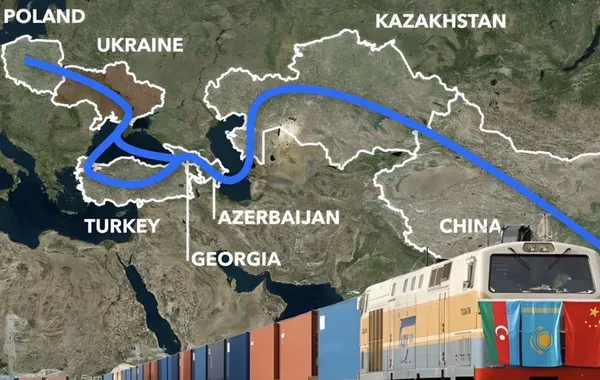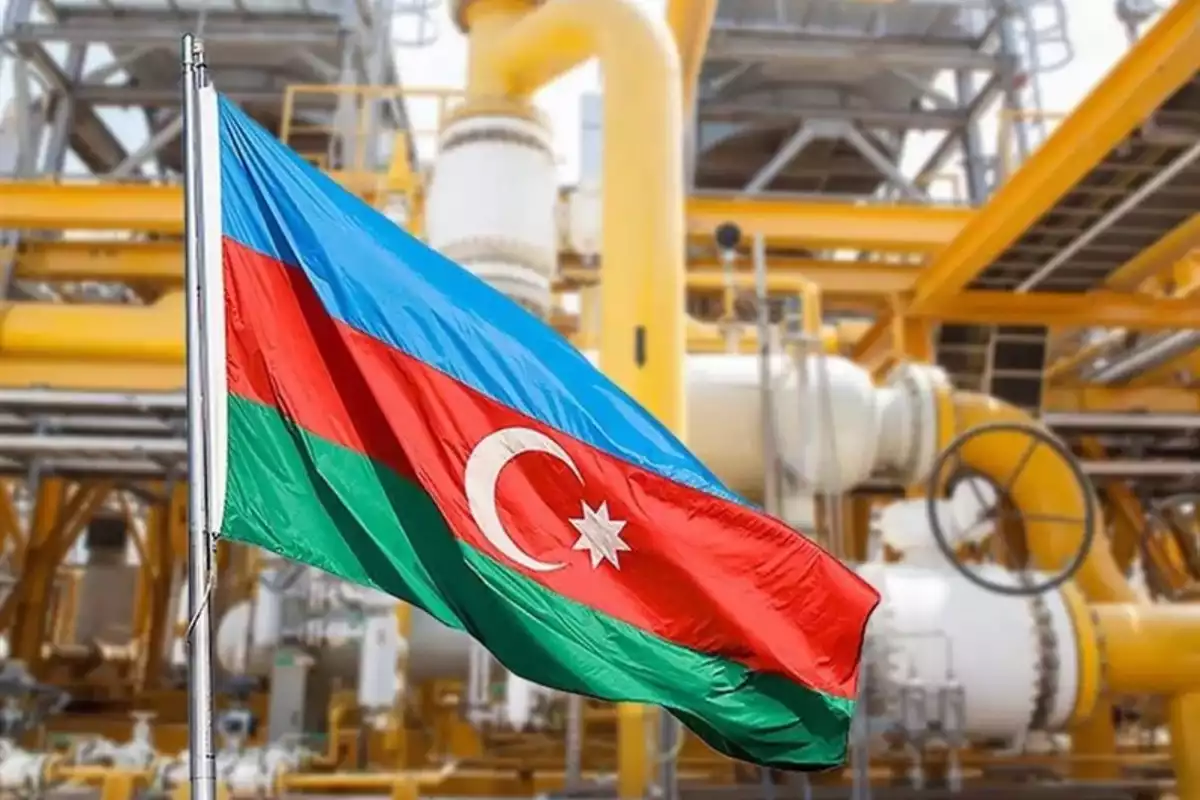
Photo credit: tasnimnews.com
By Samir Veliyev
Russia and Iran are intensifying their energy cooperation, moving closer to launching one of the most ambitious energy projects in recent years- the transit of Russian natural gas through Iranian territory. According to Iranian Ambassador to Russia Kazem Jalali, the two countries have already reached a 90% agreement on the terms of this cooperation. Only “two or three” outstanding issues remain, which both sides expect to finalize by the end of April. That’s when Tehran will host a meeting of the Russia-Iran intergovernmental commission, bringing together key ministers and stakeholders.
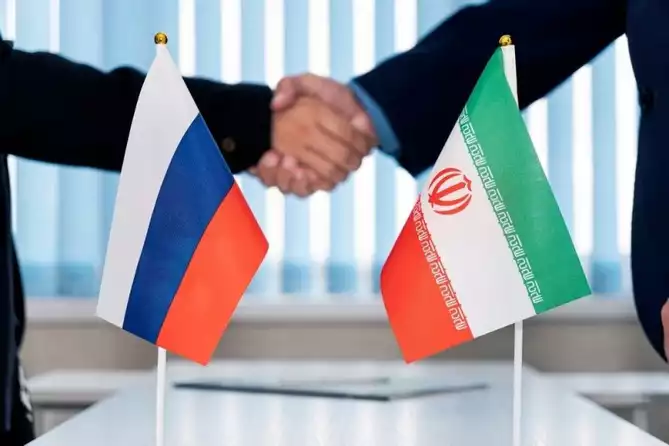
Photo credit: Shutterstock
Once all agreements are signed, it will mark a significant breakthrough in the development of an alternative southern export corridor for Russian gas-one that operates independently of Western sanctions and traditional pipeline infrastructure. The strategic significance of this initiative goes far beyond energy logistics: it reshapes geopolitical alignments, boosts regional cooperation, and introduces a new axis of integration. In this context, Azerbaijan has emerged as a linchpin of the project.
The proposed gas transit route runs through Azerbaijan, making it a strategic bridge between Russia and Iran. Baku's geography, infrastructure, and diplomatic balance have positioned it as the key transit player in this emerging energy network. The route will link the Russian pipeline system with Iran’s northern provinces, which are distant from the country’s main southern gas fields and suffer from recurring shortages, especially during winter.
In January 2025, Russian Energy Minister Sergey Tsivilev confirmed that the route had been agreed upon. Current negotiations are focused on the pricing framework and operational details. The project’s first stage envisions transporting around 2 billion cubic meters (bcm) of gas annually. However, both sides have acknowledged the potential to scale this up to 55 bcm per year-matching the pre-crisis capacity of Nord Stream 1.
This development positions Azerbaijan as the central transit hub of a new energy corridor that could rival existing European routes. It offers Baku not only economic benefits but also an expanded geopolitical role. As energy corridors become an arena of global competition, Azerbaijan’s reputation as a stable, pragmatic, and strategically neutral actor becomes even more valuable. The country has consistently managed to maintain cooperative ties with all major players-Russia, Iran, the EU, and Central Asian states-while safeguarding its national interests.
Running in parallel to the gas pipeline initiative is the North-South International Transport Corridor (INSTC), a multimodal project involving rail, road, and sea routes that aim to connect Northern Europe with South Asia. One of the most critical segments of this corridor is the 160-kilometer Rasht-Astara railway, which would fully integrate the rail systems of Azerbaijan and Iran.
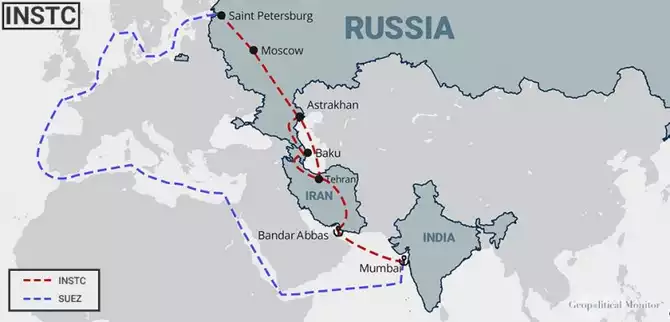
Photo credit: geopoliticalmonitor.com
According to Ambassador Jalali, the construction of this railway segment will take three to four years. Until then, cargo is being transported via rail to the Azerbaijani town of Astara, and then transferred to trucks for the journey to Rasht in Iran. Once completed, the route will offer seamless connectivity between Russia and the Persian Gulf region.
The total estimated cost of the corridor is around €1.6 billion. For Russia, it opens a vital gateway to southern markets, bypassing traditional maritime routes through the Black Sea, the Bosporus, and the Suez Canal. For Azerbaijan, the corridor strengthens its role as a logistical hub for trans-Eurasian trade, deepening its economic and strategic partnerships in multiple directions.
Iran has been actively advocating for the establishment of a regional gas hub that would include Russia, Turkmenistan, and Qatar. Such a hub would aim to balance supply and demand in the wider Caspian and Middle Eastern region and stabilize flows to energy-deficient areas such as northern Iran. Russian gas could play a pivotal role in making this vision a reality.
But the success of such an initiative depends on three key factors: infrastructure, security, and diplomatic cohesion. This is where Azerbaijan again becomes indispensable. With its experience in major transnational energy projects like the Southern Gas Corridor, TAP, and TANAP, as well as its well-maintained diplomatic relations with both Moscow and Tehran, Azerbaijan offers a credible and capable platform for regional integration.
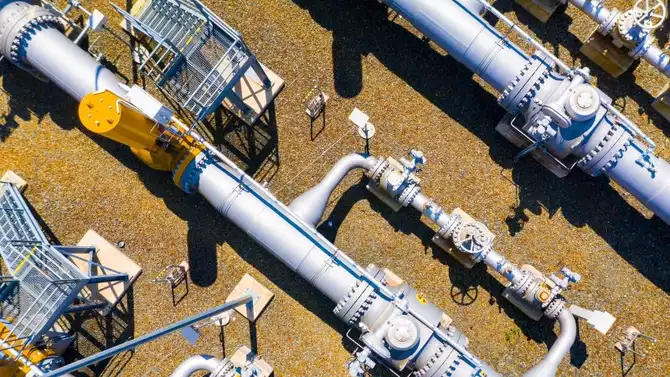
Photo credit: Shutterstock
The Russian gas transit project through Iran, with Azerbaijan as a key partner, represents more than just a pipeline. It symbolizes a shifting energy and geopolitical reality in which Baku evolves from a transit country into a full-fledged architect of Eurasian connectivity and cooperation. Its role is no longer limited to facilitating flows; it is actively shaping the infrastructure, rules, and alignments of a multipolar energy order.
This model highlights how Azerbaijan is leveraging its geography, logistical capabilities, and foreign policy agility to carve out a central role in regional affairs. While many countries are still designing alternatives to traditional trade and energy corridors, Azerbaijan is already building and operating them-projects that will define the flow of energy and goods from the Caspian Basin to the Indian Ocean for decades to come.
Share on social media
